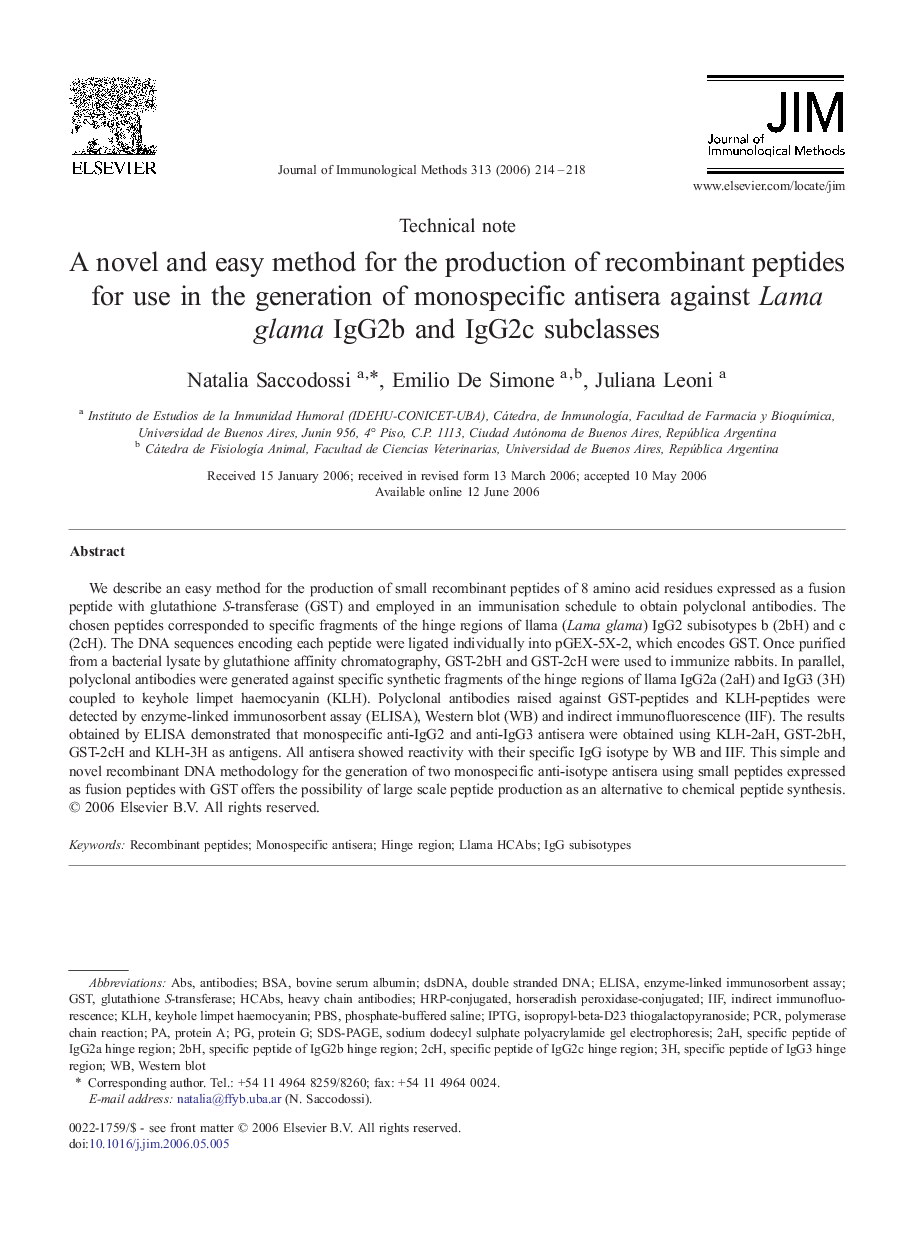| Article ID | Journal | Published Year | Pages | File Type |
|---|---|---|---|---|
| 2089362 | Journal of Immunological Methods | 2006 | 5 Pages |
We describe an easy method for the production of small recombinant peptides of 8 amino acid residues expressed as a fusion peptide with glutathione S-transferase (GST) and employed in an immunisation schedule to obtain polyclonal antibodies. The chosen peptides corresponded to specific fragments of the hinge regions of llama (Lama glama) IgG2 subisotypes b (2bH) and c (2cH). The DNA sequences encoding each peptide were ligated individually into pGEX-5X-2, which encodes GST. Once purified from a bacterial lysate by glutathione affinity chromatography, GST-2bH and GST-2cH were used to immunize rabbits. In parallel, polyclonal antibodies were generated against specific synthetic fragments of the hinge regions of llama IgG2a (2aH) and IgG3 (3H) coupled to keyhole limpet haemocyanin (KLH). Polyclonal antibodies raised against GST-peptides and KLH-peptides were detected by enzyme-linked immunosorbent assay (ELISA), Western blot (WB) and indirect immunofluorescence (IIF). The results obtained by ELISA demonstrated that monospecific anti-IgG2 and anti-IgG3 antisera were obtained using KLH-2aH, GST-2bH, GST-2cH and KLH-3H as antigens. All antisera showed reactivity with their specific IgG isotype by WB and IIF. This simple and novel recombinant DNA methodology for the generation of two monospecific anti-isotype antisera using small peptides expressed as fusion peptides with GST offers the possibility of large scale peptide production as an alternative to chemical peptide synthesis.
